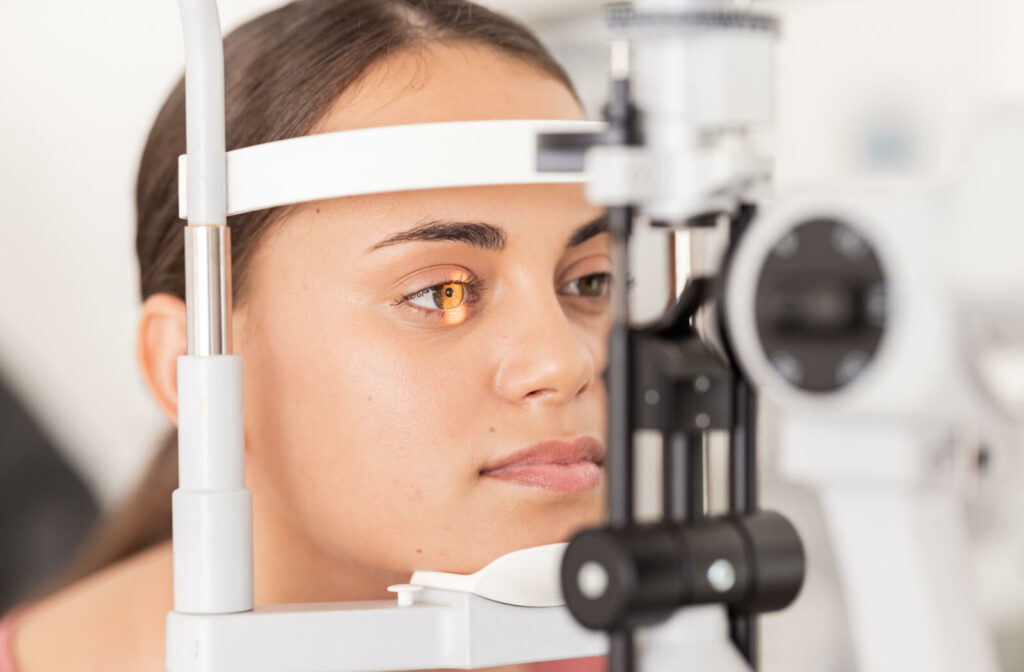Nearsightedness, medically known as myopia, is a common vision condition in which individuals find it difficult to see distant objects clearly while close objects appear sharp. This is often due to an elongation of the eyeball or an overly curved cornea which refracts light before it reaches the retina.
While there are no proven natural remedies to fix myopia, there are ways to support eye health and potentially slow its progression. Understanding the factors contributing to myopia and adopting lifestyle changes can aid in managing its impact.
What Is Nearsightedness?
To control the progression of myopia, It’s important to understand what exactly causes the condition and why it tends to get worse over time. Here are some of the common factors that contribute to nearsightedness:
- Genetics: If one or both of your parents are nearsighted, there’s a high chance you may also develop myopia.
- Age: Nearsightedness often develops during childhood and typically stabilizes in early adulthood. However, it can worsen with age due to changes in the shape of the eye.
- Visual habits: Spending excessive time near work, such as reading or using electronic devices, can strain the eyes and contribute to nearsightedness.
- Environmental factors: Studies have suggested that a lack of outdoor time and exposure to natural light may increase the risk of developing myopia.
Natural Remedies for Improved Eye Health
While there’s no cure for nearsightedness, here are some natural remedies that may help improve eye health and potentially slow down the progression of myopia:
Eye Exercises
Eye exercises can be a useful tool for managing nearsightedness. They are designed to strengthen the eye muscles, improve focus, and stimulate the vision center of the brain. The 20-20-20 rule is a simple yet effective eye exercise, particularly for those who spend a lot of time in front of screens. The rule is to every 20 minutes, take a 20-second break, and look at something 20 feet away. This practice helps to prevent eye strain and supports eye health.
Diet & Nutrition
Good nutrition plays a significant role in maintaining overall eye health and reducing the risks of developing certain eye diseases. Certain vitamins and nutrients can contribute positively to eye health:
Vitamin A: Vitamin A is essential for eye health as it helps the retina process light. It also aids the function of the cornea, which is the eye’s protective outer layer. Foods rich in vitamin A include carrots, sweet potatoes, spinach, and kale.
Antioxidants: Antioxidants such as lutein and zeaxanthin have been proven to be beneficial to eye health. They are found in high concentrations in the macula—the part of the retina that acts like a natural sunblock, shielding the eye from harmful light. Foods high in these antioxidants include leafy green vegetables, eggs, and citrus fruits.
Omega-3 Fatty Acids: Omega-3 fatty acids are known to contribute to visual development and retinal function. They can also help prevent dry eyes and maintain overall eye health. Foods rich in omega-3s include fish like salmon and tuna, flaxseeds, and walnuts.
Lifestyle Habits
Adopting certain lifestyle habits can play a crucial role in maintaining good eye health. Below are some strategies that can help in reducing the risk of myopia and other eye-related issues.
Outdoor & Sunlight Exposure: Spending time outdoors and getting adequate exposure to sunlight can be beneficial for eye health. It is believed that sunlight stimulates the production of dopamine, which helps prevent the elongation of the eyes, a key factor in myopia.
Relaxing & Unwinding: Stress can have a detrimental effect on overall health, including the health of your eyes. It is thus essential to incorporate relaxation and unwinding into your daily routine.
Proper Sleep & Rest: Getting sufficient sleep and rest is crucial for eye health. During sleep, your eyes are continuously lubricated, clearing out irritants such as dust, allergens, or smoke that are encountered throughout the day. Additionally, a lack of sleep can lead to eye strain, dry eyes, blurred vision, and other eye-related issues.
Myopia Control & How it Works
Myopia control involves using various strategies and techniques to slow down or stop the progression of myopia. The earlier myopia is detected, the more effective these methods can be in preventing high levels of myopia and related eye problems later in life. Below are some common forms of myopia control.
Orthokeratology (Ortho-K)
Orthokeratology is a non-surgical approach to reshape the cornea using specially designed contact lenses. These lenses are worn overnight, and upon removal in the morning, the patient is able to see clearly without needing glasses or contact lenses throughout the day. This method has been shown to significantly slow down myopia progression.
Multifocal Contact Lenses
Multifocal contact lenses have different prescriptions in different areas of the lens, allowing for clear vision at all distances. Research has shown that using multifocal contact lenses can slow down myopia progression by about 50%.
Atropine Eye Drops
Atropine is a medication that is typically used to dilate pupils during eye exams. However, when used in low doses, it has been found to be effective in slowing down myopia progression. This method is often used in conjunction with other forms of myopia control.

The Role of Optometry in Treating Nearsightedness
Even with the best lifestyle habits, professional assistance is an essential part of maintaining and improving eye health, particularly in diagnosing and treating conditions such as nearsightedness.
Optometrists have extensive training and clinical experience in treating various eye conditions, including nearsightedness. They can prescribe corrective lenses or contact lenses, provide rehabilitative services, and even refer patients for surgery when necessary. Regular eye exams can detect early signs of nearsightedness and other eye problems, even before any symptoms are apparent.
At Los Angeles EyeCare now operated by Total Vision, our team of experienced optometrists is dedicated to providing quality eye care services and helping you maintain healthy eyesight. Contact us today to schedule an appointment and take the first step toward a better vision!



